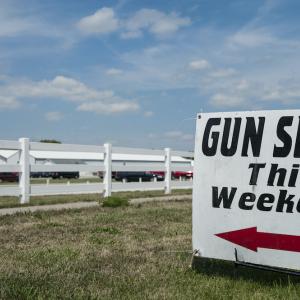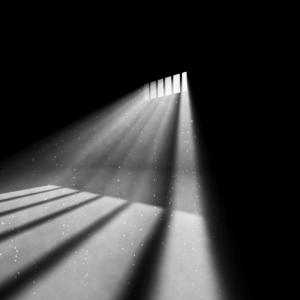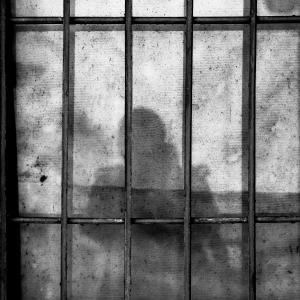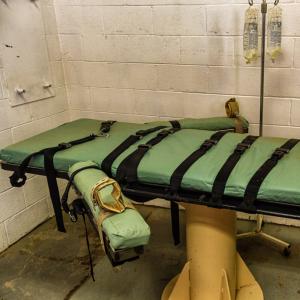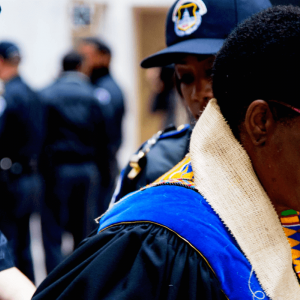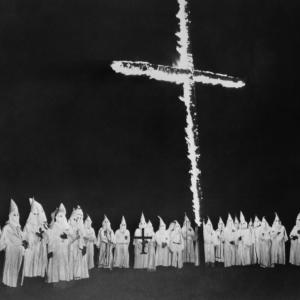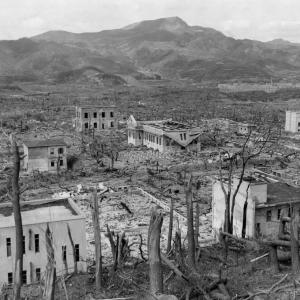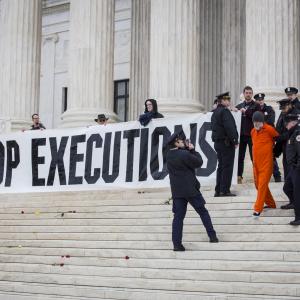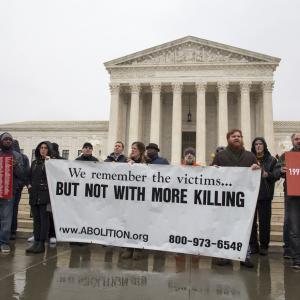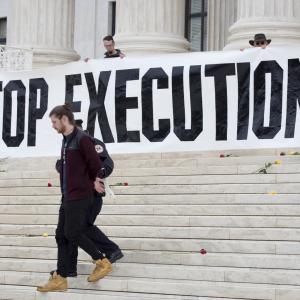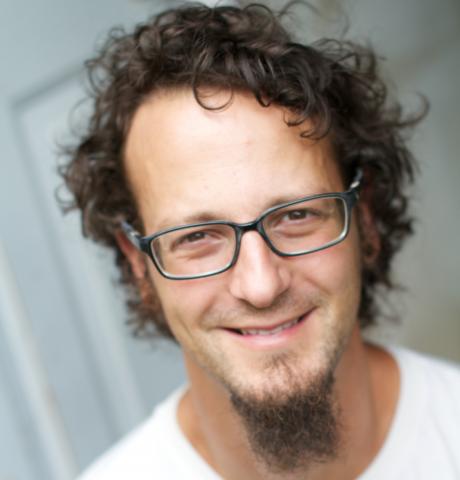
Shane Claiborne is a Red Letter Christian and a founding partner of The Simple Way community, a radical faith community that lives among and serves the homeless in the Kensington neighborhood of Philadelphia. He is the co-author, with Chris Haw, of Jesus for President. His newest book is Executing Grace: Why It is Time to Put the Death Penalty to Death.
Posts By This Author
The Strange Theology That Rejects Masks but Embraces Guns
This year has been difficult beyond description for so many people. While the COVID-19 pandemic has understandably occupied front pages across the country and around the globe for much of the past six months, another destructive wave continues to fester, creating so much pain and grief: our national plague of gun violence, which claims 100 lives a day. Together, the two crises have become a toxic combination.
'The Death Penalty Is a Failed Experiment in the U.S.'
Each of the 62 men in the federal prison in Terre Haute, Ind., are quite likely guilty of horrible crimes, and those crimes should have consequences. To be anti-death-penalty is not to be anti-victim or anti-justice. To be anti-death penalty is simply to insist that we can deal with violent crime without mirroring the violence and taking another life.
Washing the Blood Off Our Hands
We weren’t meant to kill people. When we do kill, it does something to us. In writing my book Executing Grace, I interviewed a former executioner who told me how he was haunted by the spirits of the men he executed, whose souls visited him at night and sat by his bedside.
Pulling the Plug on the Death Penalty
The question is not if we will abolish the death penalty, but when.
THE DEATH PENALTY is almost dead in America. It’s time to pull the final plug.
The number of death sentences imposed is the lowest it’s been in 40 years, and the number of executions is the lowest it’s been in 20. Every year another state abolishes the death penalty. Just this summer Delaware’s highest court declared its death penalty unconstitutional. Several more states are poised to do the same. In fact, only a handful of states are actually still executing. This year Texas and Georgia accounted for 80 percent of the executions.
Most Americans have moved on from the death penalty. When presented with alternatives, a majority of the population says they are against it.
The question is not if we will abolish the death penalty, but when. With the vacancy on the Supreme Court, we are at a critical tipping point. We will someday look back at the death penalty like we look back at slavery, asking, “How did we think that was okay?”
But where will Christians be as this history is made? It’s troubling that the death penalty has succeeded in the U.S. because of Christians, not in spite of us. Eight out of every 10 executions in the past four decades have been in the Bible belt. Where Christians are most concentrated is where capital punishment has flourished. Strange, isn’t it? One would think that those of us who worship a victim of state-sanctioned execution would be suspicious of state violence, that we’d be its biggest critics. But that’s not always the case.
But here’s the deal: I’m hopeful. Only 5 percent of Americans think Jesus would support the death penalty. Christians born after 1980 are overwhelmingly opposed to it. The National Association of Evangelicals has pulled back on its support and the National Latino Evangelical Coalition has called for total abolition. A growing movement of faith-fueled conservatives is leading the way to alternatives to the death penalty in states such as Nebraska, where a referendum to retain a death-penalty ban is on the upcoming ballot. The Movement for Black Lives lists ending capital punishment as one of its top needed reforms. And, as part of the year of mercy, Pope Francis issued a clarion call for a global moratorium.
Why We Go to Jail
A brief history of Christian civil disobedience.
YOU MAY REMEMBER the images of disabilities advocates arrested last year, some handcuffed in their wheelchairs, outside Senate Majority Leader Mitch McConnell’s office. Or the pastors arrested holding signs that said: “Love Thy Neighbor.” Or the waves of clergy and faith-leader arrests in Ferguson and Standing Rock, and those advocating for Dreamers and opposing tax cuts for the rich.
Maybe you heard about pastor Jarrod McKenna and Delroy Bergsma in Perth, Australia, who suspended themselves four stories above the office of Foreign Minister Julie Bishop to persuade the Australian government to act for refugees held on Manus Island without supplies. Or last year’s witness on the steps of the Supreme Court where 18 people of faith were arrested protesting the death penalty. Or the August gathering in Charlottesville, Va., where hundreds of courageous pastors, clergy, and other activists confronted the hatred of torch-bearing neo-Nazis and white supremacists.
These events aren’t about going to jail. They are about countering hatred with nonviolent love.
Civil disobedience is holy work. Gandhi called nonviolent civil disobedience “our sacred duty.” There are many ways to nonviolently resist injustice: Boycotts. Divestment. Writing op-eds. Petitions. Lobbying. Prayer vigils. Groundswell campaigns. Picket lines. Strikes. Die-ins. Sit-ins. Lock-downs. Distributing flyers on street corners. (Famously, the late political scientist Gene Sharp listed 198 methods of nonviolent direct action.)
Going to jail isn’t the only way to resist evil. But it is one way. And a very effective way, with a rich tradition for Christians. Though questions of privilege arise when it comes to risking arrest, what also surfaces is that some people have nothing to lose “but their chains,” as the chant goes. Many marginalized people have found civil disobedience to be a way to rage collectively against injustice and to stop business as usual.
The Latest Botched Execution Shows There’s No Good Way to Kill Someone
What must it be like to survive your own execution?
It happened this week in Ohio. And it’s not the first time.
Twisting the Cross: The Deadly Theology of White Supremacy
Just as the cross has inspired millions of Christians to stand up for life, to fight for freedom and to come alongside victims of oppression, there have also been times when the cross has been twisted. And a twisted cross becomes a swastika.
A symbol of love can become a weapon. The icon of redemption can become an instrument of terror.
May Aug. 9 Be a Day of Repentance
Aug. 9 is a good day to remember that the United States stands alone in the fire and fury we have brought to the world. There is only one nation that has used a nuclear bomb on people — the United States, and we did it twice in one week. The United States dropped the "Little Boy" bomb on Hiroshima on Aug. 6, 1945; three days later we dropped the "Fat Man" bomb on Nagasaki. More than 100,000 died instantly that week, and tens of thousands more in the weeks to follow.
A Radical Redistribution of Love
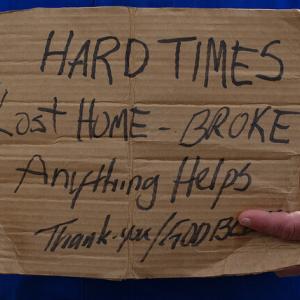
Image via A McLin/flickr.com
We are living in a time of unprecedented economic disparity between the rich and the poor, the haves and the have-nots. Masses live in poverty so that a handful of people can live as they wish. The world’s three richest people own more than the combined economies of 48 countries. The average CEO in the US is making 400 times the average worker.
It’s Time to Put the Death Penalty on Trial...Again
Law enforcement shackled us with chains on our hands, waist, and feet, and held us in jail for more than 30 hours. While we were there, the government that imprisoned us for holding a banner executed Ricky Gray. It does raise the question of what is right and what is wrong, doesn’t it?
5 Lessons for Effective Public Protest
We resisted — and we still face the possibility of jail time, fines, and community service. Here are a few of the lessons I’ve learned planning events like this one over the years. I hope you can use them as you continue to resist unjust policies.
Unequal Under the Law: The Troubling Case of Terry Edwards, Set to Be Executed on Thursday
They removed all the black folks from the pool of potential jurors.
In the trial of a black man convicted of killing two white folks.
Not in 1950 ... but in 2002.
The State of the Death Penalty in 2017
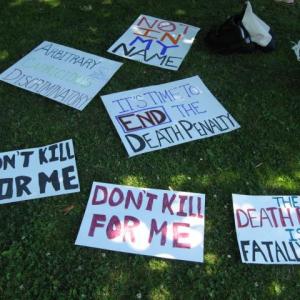
Image by javacolleen / flickr.com
We march on Jan. 17 because it is the 40th anniversary of the first "modern-era" execution, after our courts ruled in favor of the death penalty following a decade-long moratorium. On that day, Gary Gilmore was executed by firing squad in Utah in revenge for his murders of Max Jenson and Ben Bushnell. Since then there have been 1,442 other executions. We will hold 40 signs, one for each year since 1977, with the names of those executed each year. We will also carry roses for the victims — both those who have been murdered and those who have been executed — declaring that violence is the disease … not the cure.
I Witnessed the Revolutionary Love of Jesus at Standing Rock

Image via NYCStock/Shutterstock.com
Dec. 4 was a beautiful reminder, in the long struggle for justice, that, no matter how long we wait, God hears our cry. And love and justice will win.
A few weeks ago, Chief Arvol Looking Horse issued an invitation to clergy and faith leaders to stand in solidarity with the people of Standing Rock. He said he was hoping maybe 100 would respond. But I joined thousands, in a procession of faith leaders, to gather around the sacred fire at the Oceti Sakowin Camp at Standing Rock.
I knew something special was happening here.
The Death Penalty Is Finally Dying. Here's Why.
Since the reinstatement of the death penalty in 1976, Texas has had 537 executions — that’s over 400 more than any other state. But it has been more than five months since Texas has had an execution — 161 days to be exact. And that’s a record worthy of news. There’s only one other time in the past two decades that the death chamber has been that quiet in Texas.
But what’s happening in Texas reveals something deeper that’s happening all over the country. The death penalty is dying.
Family Members Showed Dylann Roof Mercy. Why Can’t Prosecutors?
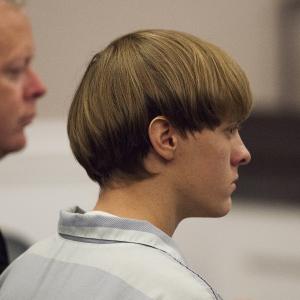
Photo via REUTERS / Randall Hill / RNS
I cannot think of a better way to honor the victims of the Charleston massacre, and the Jesus they worship, than by insisting on another form of justice for Roof.
Death by Blackness?
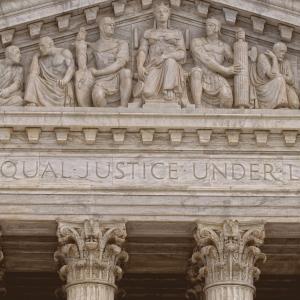
Andrea Izzotti / Shutterstock.com
The color of your skin shouldn’t determine whether you live or die. But that is precisely the case for Duane Buck, a Texas man facing execution. His case is before the Supreme Court this month.
Remembering Amiriyah

Image via John Wollwerth/Shutterstock.com
This week marks 25 years since the horrific U.S. bombing of the Amiriyah shelter in Iraq. At least 408 women and children died.
As we consider what has helped fuel the rage and hostility of extremists like ISIS, we can point to concrete events like the bombing of Amiriyah. It clearly does not justify the evil done by ISIS, but it does help us explain it.
'We set out to start a community, and now we have a village'
Ten years after the release of his best-selling book, Irresistible Revolution, Shane Claiborne talks with Jim Wallis about nonconformity, ending the death penalty, and cutting his hair.
A SELF-PROCLAIMED “ordinary radical” from eastern Tennessee, Shane Claiborne is a founding member of the New Monasticism movement, which encourages a life of simplicity, nonviolence, community, and prayer. In 1997, along with fellow passionate friends from Eastern University, Shane co-founded The Simple Way—an intentional Christian community in inner-city North Philadelphia. His books include Jesus for President, Red Letter Revolution, Common Prayer, and Becoming the Answer to Our Prayers. He’s been featured in films such as Another World is Possible and Ordinary Radicals. His forthcoming book, Executing Grace, calls Christians to advocate for the abolishment of the death penalty.
Shane’s first book, The Irresistible Revolution: Living as an Ordinary Radical, quickly became a foundational text for many young, social justice-minded Christians. Now, 10 years later, he’s updating the world about what this revolution looks like today. Claiborne spoke with Sojourners editor-in-chief Jim Wallis by phone in November about what’s new—and what’s not—in his lifelong vocation to be part of the Jesus revolution.
Jim Wallis: This is the 10th anniversary of the publication of Irresistible Revolution, and you’ve just released an updated edition. What new insights can we expect in this version?
Shane Claiborne: After 20 years of living in North Philly, there are things you look back on and you think, wow, that looks different from what I thought it would. So it’s been a surprise and a gift to get to tweak the book a little bit. I wrote notes in the margins throughout the book. Some of them are fun and some of them are to be a little bit more accurate. Then I did a whole section of frequently asked questions. Those run the gambit of “How come you got married?” to “What do you do with ISIS?” I added an appendix, too, about the tradition of civil disobedience in the church. It was fun!
“The irresistible revolution,” you said in the first edition of the book, “isn’t just about going to heaven when you die, but bringing heaven down as you live. ... The revolution we are talking about begins inside each of us and extends to the ends of the earth.” Has that changed? No, I don’t think that has changed at all. What does change are the ways we live that out. When we started The Simple Way 20 years ago, there was the sense that everybody needs to leave everything behind and just live on the streets. What we’ve seen the Spirit doing is much more dynamic and spectacular than that—people are living out unique vocations. We have lawyers, doctors, plumbers, gardeners, or urban farmers—folks who are using their gifts for seeking first the kingdom of God and interrupting the patterns of injustice.
Why Philly Is the Perfect Place for the Pope to Denounce the Death Penalty
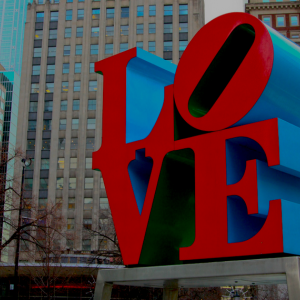
Image via Jake Kitchener/Flickr
I can’t help but think old William Penn would be proud of Gov. Wolf earlier this year as he made his announcement to halt all executions. Penn was a pacifist and a serious skeptic of capital punishment. His Quaker heritage held that every human being carries the essence of God, and that no one should ever take the life of another, not even the state.
As Pope Francis leads worship on the Benjamin Franklin Parkway in the heart of Philadelphia, a statue of William Penn will be looking down on him from atop City Hall, and I can’t help but think our Quaker forefather will be smiling — especially as Pope Francis continues to insist that every person carries the image of God in them… and that no one is beyond redemption.
I look forward to the end of the death penalty, and I hope we get one step closer to it as the pope comes to the City of Brotherly Love.
